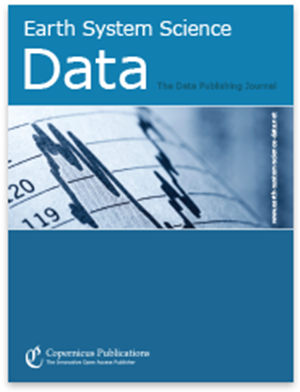High-resolution Carbon cycling data from 2019 to 2021 measured at six Austrian LTER sites
IF 11.6
1区 地球科学
Q1 GEOSCIENCES, MULTIDISCIPLINARY
引用次数: 0
Abstract
Abstract. Seven long-term observation sites have been established in six regions across Austria, covering major ecosystem types such as forests, grasslands and wetlands across a wide bioclimatic range. The purpose of these observations is to measure key ecosystem parameters serving as baselines for assessing the impacts of extreme climate events on the carbon cycle. The data sets collected include meteorological variables, soil microclimate, CO2 fluxes and tree stem growth, all recorded at high temporal resolution between 2019 and 2021 (including one year of average climate conditions and two comparatively dry years). The DOIs of the dataset can be found in the data availability chapter. The sites will be integrated into the European Research Infrastructure for Integrated European Long-Term Ecosystem, Critical Zone, and Socio-Ecological Research (eLTER RI). Subsequently, new data covering the variables presented here will be continuously available through its data integration portal. This step will allow the data to reach its full potential for research on drought-related ecosystem carbon cycling.在六个奥地利 LTER 站点测量的 2019 年至 2021 年高分辨率碳循环数据
摘要在奥地利的六个地区建立了七个长期观测点,涵盖森林、草原和湿地等主要生态系统类型,生物气候范围广泛。这些观测点的目的是测量关键的生态系统参数,作为评估极端气候事件对碳循环影响的基线。所收集的数据集包括气象变量、土壤微气候、二氧化碳通量和树干生长,所有数据均以高时间分辨率记录,时间跨度为 2019 年至 2021 年(包括一年平均气候条件和两年相对干旱的年份)。数据集的 DOIs 见数据可用性一章。这些站点将被纳入欧洲生态系统、临界区和社会生态综合研究基础设施(eLTER RI)。随后,将通过其数据集成门户网站不断提供涵盖本文所述变量的新数据。这一步骤将使数据在与干旱相关的生态系统碳循环研究中充分发挥其潜力。
本文章由计算机程序翻译,如有差异,请以英文原文为准。
求助全文
约1分钟内获得全文
求助全文
来源期刊

Earth System Science Data
GEOSCIENCES, MULTIDISCIPLINARYMETEOROLOGY-METEOROLOGY & ATMOSPHERIC SCIENCES
CiteScore
18.00
自引率
5.30%
发文量
231
审稿时长
35 weeks
期刊介绍:
Earth System Science Data (ESSD) is an international, interdisciplinary journal that publishes articles on original research data in order to promote the reuse of high-quality data in the field of Earth system sciences. The journal welcomes submissions of original data or data collections that meet the required quality standards and have the potential to contribute to the goals of the journal. It includes sections dedicated to regular-length articles, brief communications (such as updates to existing data sets), commentaries, review articles, and special issues. ESSD is abstracted and indexed in several databases, including Science Citation Index Expanded, Current Contents/PCE, Scopus, ADS, CLOCKSS, CNKI, DOAJ, EBSCO, Gale/Cengage, GoOA (CAS), and Google Scholar, among others.
 求助内容:
求助内容: 应助结果提醒方式:
应助结果提醒方式:


